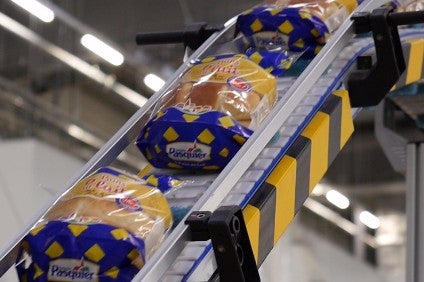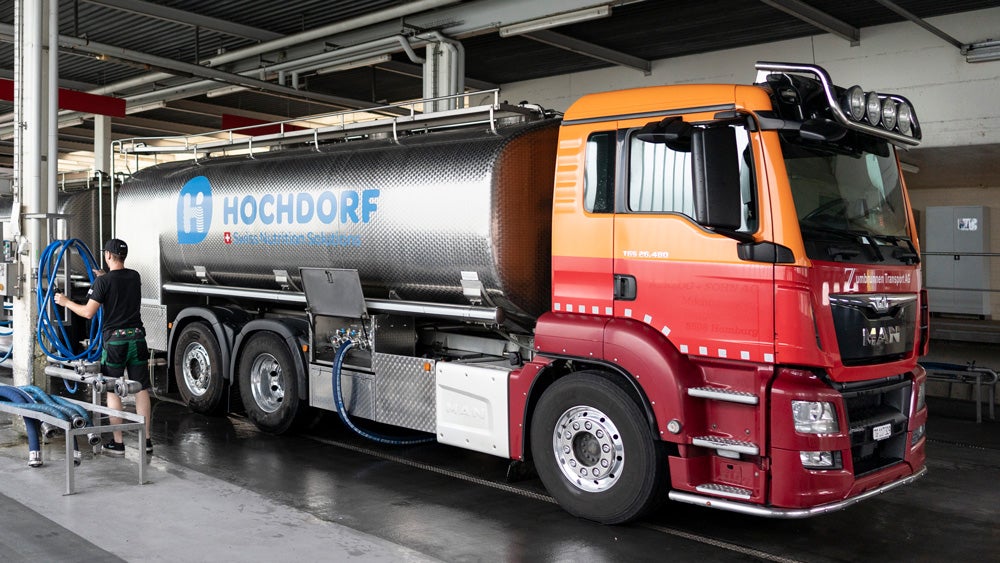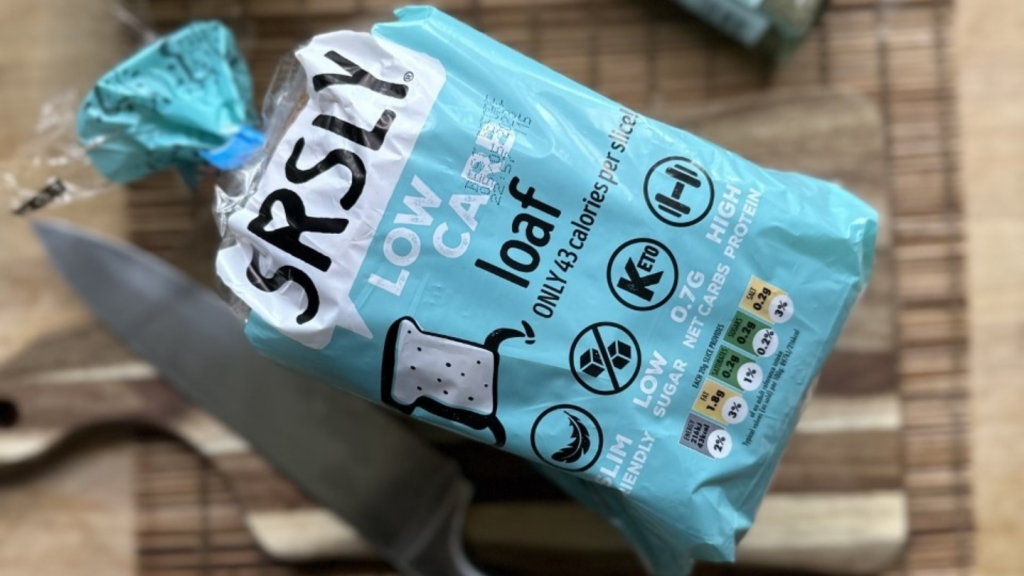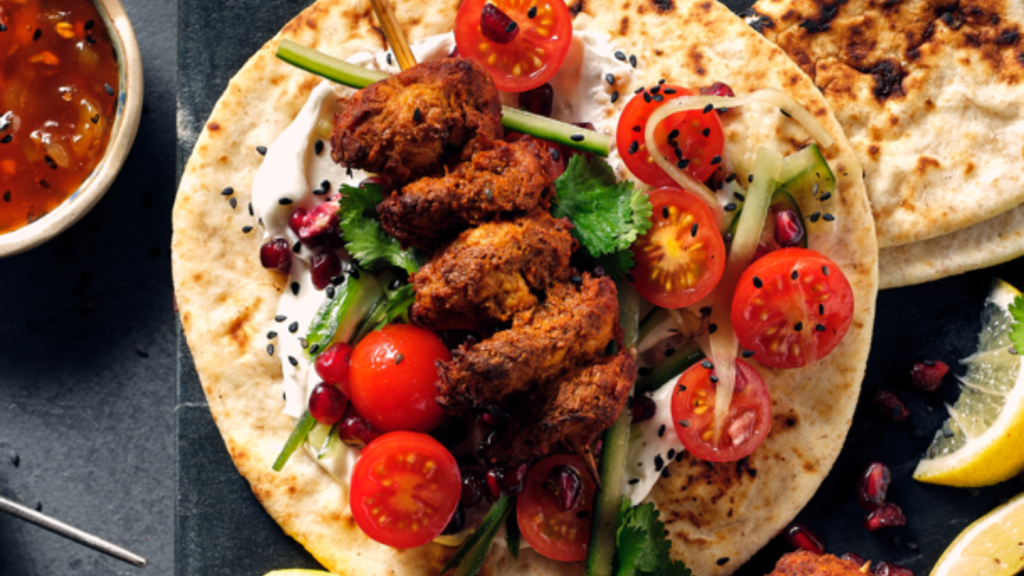
Brioche Pasquier, the France-based bakery group, sees international expansion as a central plank of its growth strategy. Among the family-owned company’s largest international markets is the UK. Dean Best met Olivier Ripoche, the managing director of Brioche Pasquier’s UK business, as the group officially opened the latest production line at its plant north of London to discuss the company’s plans and why it is sanguine about Brexit.
The UK’s departure from the EU is the country’s most significant political and economic event for more than 40 years. Across business, companies are trying to work out what they need to do to adapt to the UK leaving the world’s largest trading bloc. In the food industry, concerns about the impact of Brexit are manifest. But, in a town 50 miles north of London, an air of Gallic insouciance mixes with the aroma of baking at one international food company determined to continue to invest in the UK.
Brioche Pasquier, the French, family-owned, international bakery business entered the UK in 2001, setting up an office in the Kent town of Maidstone, 30 miles or so from the English Channel. In 2005, the company decided to move its UK base to Milton Keynes, north of London. Just over a decade later, the business started manufacturing at the site.
Two weeks ago, in the presence of the five Pasquier brothers who have owned the business after the death of their father (and founder of the business) Gabriel in 1972, the company officially opened its second production line at the Milton Keynes factory.
France remains by far the largest single market for Brioche Pasquier, accounting for around three-quarters of its annual sales of EUR670m (US$786.3m), a figure expected to grow to more than EUR690m this year. However, Brioche Pasquier is looking to grow its international business and counts the UK as among its most important markets outside France.
In 2016, Brioche Pasquier’s UK business generated a turnover of GBP42.6m (US$56.6m), up more than 8% on a year earlier. A rise in the cost of sales, as well as higher distribution and administrative expenses, meant the unit reported an operating loss of GBP3.7m for last year, with a net loss of roughly the same amount.
How well do you really know your competitors?
Access the most comprehensive Company Profiles on the market, powered by GlobalData. Save hours of research. Gain competitive edge.

Thank you!
Your download email will arrive shortly
Not ready to buy yet? Download a free sample
We are confident about the unique quality of our Company Profiles. However, we want you to make the most beneficial decision for your business, so we offer a free sample that you can download by submitting the below form
By GlobalDataHowever, growth of 8% in a challenging UK food market is a solid result and, despite the ground needed to be made to make the business profitable, Brioche Pasquier has plans to invest further in the country. The Milton Keynes plant has room for a third line, which Brioche Pasquier plans to install either in 2019 or 2020 and on which it is looking to make its Pitch filled brioche, a product already on sale in the UK but which is imported from France.
Speaking to just-food after the official unveiling of the second line, Olivier Ripoche, the managing director of Brioche Pasquier’s UK business, says there is land around the plant for a facility to house three more lines. There is, of course, a chance these plans do not come to fruition but the fact Brioche Pasquier has sketched out an expansion programme highlights the company’s aspirations for the UK market, even at a time of uncertainty for business. Ripoche, however, seems relatively relaxed about the prospect of Brexit on the horizon.
“We know in every country there are different issues, difficulties at the moment but it’s the strategy of the company to be local and to be part of the economy,” Ripoche says.
He insists the UK’s vote to leave the EU did not make Brioche Pasquier reassess its plans. “For us, the priority is for the factory to succeed here, to carry on to develop and make our brand known to consumers on brioche, patisserie and biscotte. We have to adapt ourselves to our environment, the competitors, the market,” Ripoche says. “You’ve got your strategy, your view and you need to believe in it. We are very confident about the future and this is our priority. If this one [factory] becomes full, we will build another one.”
With EU nationals making up a significant chunk of the workforce in the UK food manufacturing sector, the impact of Brexit on staffing levels is a major concern for some businesses. Ripoche insists Brioche Pasquier has not seen any impact on its workforce in Milton Keynes, though he concedes the fall in the value of sterling since the UK’s referendum on EU membership in June last year has been felt. Brioche Pasquier is, he says, looking to slowly source more raw materials within the UK for the manufacturing at the site.
“I can’t say it’s not complicated because we still take products from the France factories,” Ripoche says. Brioche Pasquier has had discussions with its UK retail customers on price but, asked if the company had succeeded in passing through cost increases, Ripoche replies: “There is still discussion about what we can do. Maybe reduce this year and invest the year after. There are different areas we can touch to be sure the price is good for them, for us and for the consumer.”
Another issue that could dampen the enthusiasm of Ripoche and Brioche Pasquier for the UK is the heightened scrutiny being placed on ingredients, especially on sugar.
However, Brioche Pasquier has not looked to reduce the levels of sugar or salt in its products on sale in the UK. Ripoche describes brioche as “an indulgent product” but says it compares favourably when looking at calories. “On kilocalories, they are not that bad for 47.5g. It’s indulgent. If you eat brioche and need to be on a diet, maybe eat one a day and not the whole pack.”
And Ripoche seems equally sanguine about any criticism that could come the company’s way from its association with schools and youth football in the local area. “We’ve got 40 years. Pitch especially was always associated with sports and children [in France] – basketball, Tour de France, football. Here we work with schools, we did [Cancer Research UK’s] Race for Life. There will always be people who say you can’t put food on this,” is Ripoche’s riposte.
The majority of Brioche Pasquier’s UK sales is made through the country’s retail channel. Ripoche says the split between retail and foodservice is around 80:20. The bulk of the company’s retail sales are made through its brands, with its pain au lait lines the two principal locally-manufactured products, alongside the imported Pitch.
A tour around the factory shows Brioche Pasquier does make own-label lines for UK grocers but Ripoche says it is a side of the business the company does not proactively push. “To make it happen we need volume and if we don’t have the volume it’s not possible. When it’s possible, we say yes but the client has to compromise to our production as well,” Ripoche says.
However, the Brioche Pasquier UK chief would like the 80:20 split to become less pronounced over time. He believes the Brioche Pasquier portfolio means it can grow its UK foodservice business. “I think there is a great opportunity for patisserie, brioche as well for breakfast or snacking. We also do biscotte, croutons for salads, mini toast for apertifs or canapes. I think there is a huge market here,” Ripoche says. “Our aim is to rebalance. It’s not to reduce our business in retail but to grow our business in foodservice. I would like in the future to be 50/50.”
He is, however, slightly more cautious on putting a figure on the annual turnover growth he is targeting from Brioche Pasquier’s UK business. “If Pascal [group CEO Pascal Pasquier] reads it, I would be in trouble,” Ripoche jokes, before adding: “We want to grow and to make it stronger and stronger. Every year is different. We need to be careful but we’ve got a good leverage with patisserie, biscotte – and consumers eat brioche once a month. If they eat twice a month, we can easily double the turnover. For me, I am sure one day we’ll have a second factory in the UK.”







